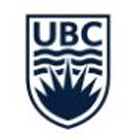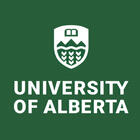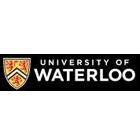Know why study in Canada is so popular with Indian students
30 Top-Ranked Universities | 3 Years of PSW | High Employability | Affordable Tuition – Canada is Your Path to Success!
Canada is a premier destination for nearly half a million international students, renowned for offering high-quality, affordable education with degrees that are recognised worldwide. Canadian universities not only provide a great return on investment but also rank highly on global indices for quality of life, making it an attractive location for students from around the globe, including a large number from India.
Furthermore, Canada enhances the value of its educational offerings with up to three years of post-study work rights and favourable immigration policies that facilitate pathways to permanent residency for graduates. This combination of educational excellence, economic opportunity, and high standards of living positions Canada as a top choice for pursuing higher education.
Latest Updates for Studying in Canada (2026 Onwards)
Canada continues to strengthen its position as one of the most student-friendly and PR-oriented destinations globally. The latest policy updates clearly signal one thing: Canada is prioritising quality talent and long-term settlement pathways.
Clearer Path from Study & Work to Permanent Residence
Canada will transition up to 33,000 work permit holders to Permanent Residence (PR) between 2026–2027.
This reinforces Canada’s commitment to rewarding skilled international graduates who study, work, and contribute meaningfully to the economy.
Focus on Quality Students (Not Just Volume)
Canada has announced new study permit targets:
2026: 155,000 new permits
2027 & 2028: 150,000 new permits each year
- These caps apply only to new study permits, not extensions.
- The target is higher than current intake levels, leaving ample room for growth.
What this means:
Canada is welcoming academically strong, goal-driven students with clear career plans.
Big Boost for Master’s & PhD Aspirants — NO CAP! From January 2026, there will be NO CAP on postgraduate (Master’s & PhD) students at public universities. Additional advantage:
No Provincial/Territorial Attestation Letter (PAL/TAL) required for Master’s & PhD applicants from January 1, 2026.
Faster, simpler application process
Better job outcomes & stronger PR prospects
Dependents allowed
This is a game-changing opportunity — Master’s programs in Canada are now more attractive than ever. Skill-Based PR Pathways — A Big Win for Graduates Canada is developing new skill-based PR pathways for:
International graduates
Work permit holders
Students who gain relevant Canadian work experience and industry-aligned skills will have higher PR success rates.
Canada Continues to Value International Talent Canada aims to bring its temporary resident population from ~6.5% down to ~5% of its total population.
To achieve this, the government is:
Fast-tracking temporary residents to PR
Temporarily slowing new TR intake
Once this balance is achieved, future intake conditions are expected to stabilise further. The Bottom Line Even with adjusted numbers, Canada’s message is clear:
Quality education + employable skills = long-term career growth and PR success. Canada remains one of the most stable, rewarding, and future-focused study destinations for students seeking global careers and permanent settlement.
.
Why Study in Canada?
Top Student Destination: Canada is celebrated for its student-friendly atmosphere. In 2025, three Canadian cities made it to the top 50 of the QS Best Student Cities list.
Extended Work Opportunities: After graduation, students can benefit from up to 3 years of post-study work rights
, enhancing their career prospects.
World-Class Education: Canadian universities are globally recognised for their quality yet remain affordable. The
QS World University Rankings 2025 features three Canadian institutions in the top 50, with 30 universities
in total making the list.
Cultural Diversity: Canada's multicultural environment welcomes students from around the globe, providing a rich tapestry of interactions and perspectives
Top courses to study in Canada
Here are the popular study abroad courses that you can choose for studying in Canada:
Computer science
Business
Engineering
Health sciences
Physiotherapy
Information technology
Animation and gaming
Hospitality
Top universities to study in Canada
When deciding which university to study at, it is crucial that you also look at the world university rankings.
S.No. | Institution | QS Ranking 2025 (Globally) |
1 | University of Toronto | 25 |
2 | McGill University | 29 |
3 | University of British Columbia | 38 |
4 | University of Alberta | 96 |
5 | University of Waterloo | 115 |
6 | Western University | 120 |
7 | Université de Montréal | 159 |
8 | McMaster University | 176 |
9 | University of Ottawa | 189 |
10 | Queen's University at Kingston | 193 |
Intakes in Canada
Unlike a single intake in Indian universities, Canadian colleges and universities offer three intakes. In some universities, intakes may also be referred to as a semester. The three intakes available in Canada are:
Fall: A popular intake among Indian students, The Fall intake starts in the month of September
Winter: Starts in January; it’s best if you miss the September intake
Summer: Available for limited programs and colleges, the Summer intake usually starts around April and May
Know more about Intakes to study in Canada
Cost to study in Canada
Your expenditure on tuition fees depends on the type of qualification and institution you opt for. To cover this, you will need approximately between CAD 13,000 - CAD 35,000 a year.
Most commonly, courses in humanities, education, and arts are a little cheaper, while subjects such as medicine and engineering are likely to be more expensive. If you wish to study at a postgraduate level, the tuition fee is typically higher, and the costs vary depending on the program. As with most other countries, MBA programs are often the most expensive. The average cost for these programs ranges between CAD 30,000-42,000.
S.no. | Study program | Average annual fee |
1 | $13,000 to $20,000 | |
2 | $17,000 to $25,000 | |
3 | Doctoral Degree | $7,000 to $15,000 |
4 | $30,000 to $40,000 |
*Please note all fee figures are indicative
You can apply to various Canadian scholarships as well to bring down your educational expenses.
Read more about the Cost of studying in Canada.
Live life in the FastLane
Want to check if you're eligible to get into your dream university? With IDP Fastlane you can get an in-principle offer in seconds!
Enter your preferences to find and short list matching courses, provide your academic details and get ready to receive a response from your dream university within seconds!
Scholarships to study in Canada
Here are some popular government-funded scholarships available for Indian students to study in Canada:
S. No. | Name of the scholarship | Description |
1 | Shastri Indo-Canadian Institute | Offers various fellowships at different levels from graduate to post-doctorate and from research to training fellowships |
2 | Canadian Commonwealth Scholarship and Fellowship Plan | This scheme identifies students with high intellect from Commonwealth countries applying to programs of advanced study and research at the Master’s and PhD level |
3 | Ontario Graduate Scholarship Program | This scholarship is for graduate students in a wide variety of disciplines. |
4 | National Research Council of Canada (NRCC) | Research associateship is offered to master’s degree holders in engineering and Ph.D. holders in natural science or engineering disciplines. |
5 | Quebec Provincial Government Scholarship | This scholarship is for students studying in Quebec. |
6 | Ontario Trillium Scholarship | First announced in November 2010 for doctoral students from around the world to study in Ontario. |
7 | Partnership Grants by the Social Sciences and Humanities Research Council of Canada | This scholarship is for Ph.D. candidates. |
8 | Banting Postdoctoral Fellowships | This is offered by the Canadian government to students from India to pursue postgraduate programs within natural science, social sciences, or healthcare research. |
9 | Vanier Canada Graduate Scholarships | This scholarship is awarded by the Government of Canada to meritorious students who aspire to pursue a doctoral degree at a Canadian institution. |
*This is an indicative list, speak with our Canada Education Consultants for more details and get the best available options suited to your profile
Learn more about Canada scholarships for Indian students
Student visa requirements for Canada
To study in Canada, Indian students must obtain a study permit, which is essential for validating their stay. Alongside the study permit, you'll either receive a visitor visa or an Electronic Travel Authorization (ETA), which authorizes your entry into the country. It's crucial to stay enrolled and progress reasonably towards completing your course while on a study permit.
Top student cities Canada
Canada is renowned for its high-quality education and welcoming atmosphere for Indian students. Here are some of Canada’s top student cities, as featured in the QS Best Student Cities Rankings 2025, each providing a unique combination of academic prestige and dynamic lifestyle:
City | Rank |
Montreal | 10 |
Toronto | 11 |
Vancouver | 19 |
Ottawa | 57 |
Quebec | 128 |
Cost of living in Canada
Indeed, there exists a substantial difference between living in Canada and your home country. It is important to explore the Canadian lifestyle and cost of living of the place where you plan to stay. Quebec makes one of the most affordable Canadian cities with the cost of living far less compared to other cities.
Also, while applying for your student permit, you have to prove to the Canadian government that you have enough money to meet the financial expenses. So, keep that in mind!
When planning your budget, do include the following expenses:
Communication costs: Always set aside money in your budget for phone and data bills as you’d be calling your friends and family back home frequently. Look for low-cost calling plans as well as student discounts. The average monthly cost will be around CAD 20.
Textbooks and supplies: Buying textbooks can be costly. Books for engineering courses, for example, might cost anywhere between CAD 250 and CAD 350. The value of courses like law, medicine, and pharmacy can be even higher. You may keep this within your budget by buying used books, purchasing digital versions, or even enrolling in a library membership.
Personal expenses and incidentals: Laundry, toiletries, clothing, dining out, and so on will be part of your everyday spending. This is largely dependent on the type of lifestyle you select.
Job prospects in Canada
In recent years, Canada has continued to be a magnet for Indian students, thanks to its robust educational system and abundant work opportunities for students and professionals alike. As per the latest rankings by Forbes and US News, Canada remains a top performer among G20 nations for business friendliness. The Economist Intelligence Unit further predicts Canada to rank among the top three countries in the G7 for ease of doing business in the near future, highlighting its stable and welcoming business environment. This strong economic position suggests that international students can anticipate plentiful job opportunities during their studies and as they transition into the workforce, emphasizing Canada’s appeal as an optimal destination for academic and professional pursuits

Secure your future with an education loan
Our student loan partners offer flexible financing options to help support your goals. Take charge of your future today.

Get your finances sorted with student banking
Set up your bank account before you arrive and secure your finances abroad.

Set up your local number with a sim card
Simplify your set up and stay connected with a local sim card for your destination.
Cost of living calculator
Estimate how much you will need to cover your expenses including cost of living comparison for various country and accommodation options.








